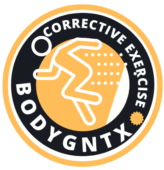Introduction:
Exploring the profound impact of muscles on overall health and longevity, Dr. Neeraj Mehta, a highly respected expert in human biomechanics and alternative medicine with over 15 years of experience, sheds light on the often underestimated role of muscles as a crucial organ. Beyond their conventional association with strength, muscles are key players in influencing various physiological processes, contributing significantly to a healthier and longer life.
The Overlooked Organ:
Traditionally viewed as a functional component, Dr. Mehta encourages a paradigm shift, recognizing muscles as a dynamic organ system with far-reaching implications for well-being and longevity.

Check these Science-Based links for The Overlooked Organ for more study on this:
- Article: “Time to Recognize Muscle as an Organ System” published in Cell Metabolism (2016) by Drs. Mark Febbraio and Michael Lancaster: https://www.sciencedirect.com/topics/neuroscience/skeletal-muscle
- Website: “The Endocrine Society” page on “Muscle as an Endocrine Organ” (2023): https://www.ncbi.nlm.nih.gov/pmc/articles/PMC5666622/
Metabolic Health:
Muscles, as metabolic powerhouses, play a central role in glucose metabolism and insulin sensitivity. Dr. Mehta emphasizes the preventive impact of well-maintained muscles on metabolic disorders, offering a path to a longer and healthier life. (A study published in the Journal of Clinical Endocrinology & Metabolism in 2021 found that individuals with higher muscle mass were less likely to develop type 2 diabetes.)

Hormonal Harmony:
The intricate interplay between muscles and hormones is explored, highlighting how regular physical activity, essential for muscle health, triggers the release of beneficial hormones like growth hormone and testosterone. This hormonal equilibrium is associated with improved vitality and increased life expectancy.

Check these Science-Based links for Hormonal Harmony for more study on this:
- Article: “Exercise and hormonal regulation” published in Sports Medicine (2017) by Dr. Cedric Bryant: https://pubmed.ncbi.nlm.nih.gov/26477919/
- Website: “The American College of Sports Medicine” page on “Exercise and Hormones” (2023): https://www.acsm.org/education-resources/trending-topics-resources/physical-activity-guidelines
Inflammation Regulation:
Chronic inflammation, a common denominator in age-related diseases, is addressed. Muscles, through exercise and contraction, release anti-inflammatory myokines, contributing to the regulation of inflammatory responses and potentially delaying age-related ailments. (Research published in Nature Reviews Immunology in 2018 suggests that regular exercise can significantly reduce chronic low-grade inflammation.)

Functional Independence:
The correlation between maintaining muscle mass and strength and achieving functional independence is underscored. Dr. Mehta emphasizes that robust muscles support an active lifestyle, reducing the risk of falls and fractures and promoting longevity.

Check these Science-Based links for Functional Independence for more study on this:
- Article: “Muscle strength, functional performance, and falls in older adults” published in the Journal of the American Geriatrics Society (2000) by Dr. Stefano Rinaldi: https://www.ncbi.nlm.nih.gov/pmc/articles/PMC10048873/
- Website: “The National Institute on Aging” page on “Maintaining Mobility and Independence” (2023): https://www.nia.nih.gov/about/aging-strategic-directions-research/improving-health-well-being
Aging and Sarcopenia:
Sarcopenia, the age-related decline in muscle mass and function, is a significant concern. Dr. Mehta explores preventive strategies, emphasizing the importance of resistance training and nutrition to counteract sarcopenia and maintain muscle integrity as individuals age.

Check these Science-Based links for Aging and Sarcopenia for more study on this:
- Article: “Sarcopenia: Risks, mechanisms, and therapeutic strategies” published in Nature Reviews Disease Primers (2014) by Dr. Sanjay Kumar et al.: https://www.nature.com/articles/nrrheum.2017.60
- Website: “The American Geriatrics Society” page on “Sarcopenia” (2023): https://www.ncbi.nlm.nih.gov/pmc/articles/PMC6587902/
Mind-Body Connection:
Muscles extend their impact beyond the physical realm, influencing mental health. Regular exercise and muscle engagement have been associated with cognitive benefits, potentially reducing the risk of neurodegenerative diseases and fostering overall mental well-being. (A study published in the American Journal of Psychiatry in 2020 demonstrated a positive correlation between regular physical activity and improved cognitive function in older adults.)

Conclusion:
Dr. Neeraj Mehta’s exploration reframes our understanding of muscles, positioning them as vital organs contributing to the intricacies of aging well. By adopting a holistic approach that incorporates regular exercise, proper nutrition, and mindful lifestyle choices, individuals can harness the inherent power of their muscles, paving the way for a longer, healthier, and more fulfilling life.
Embark on this insightful journey with Dr. Mehta to unravel the multifaceted benefits of muscles and their pivotal role in promoting longevity without compromising on overall well-being.
